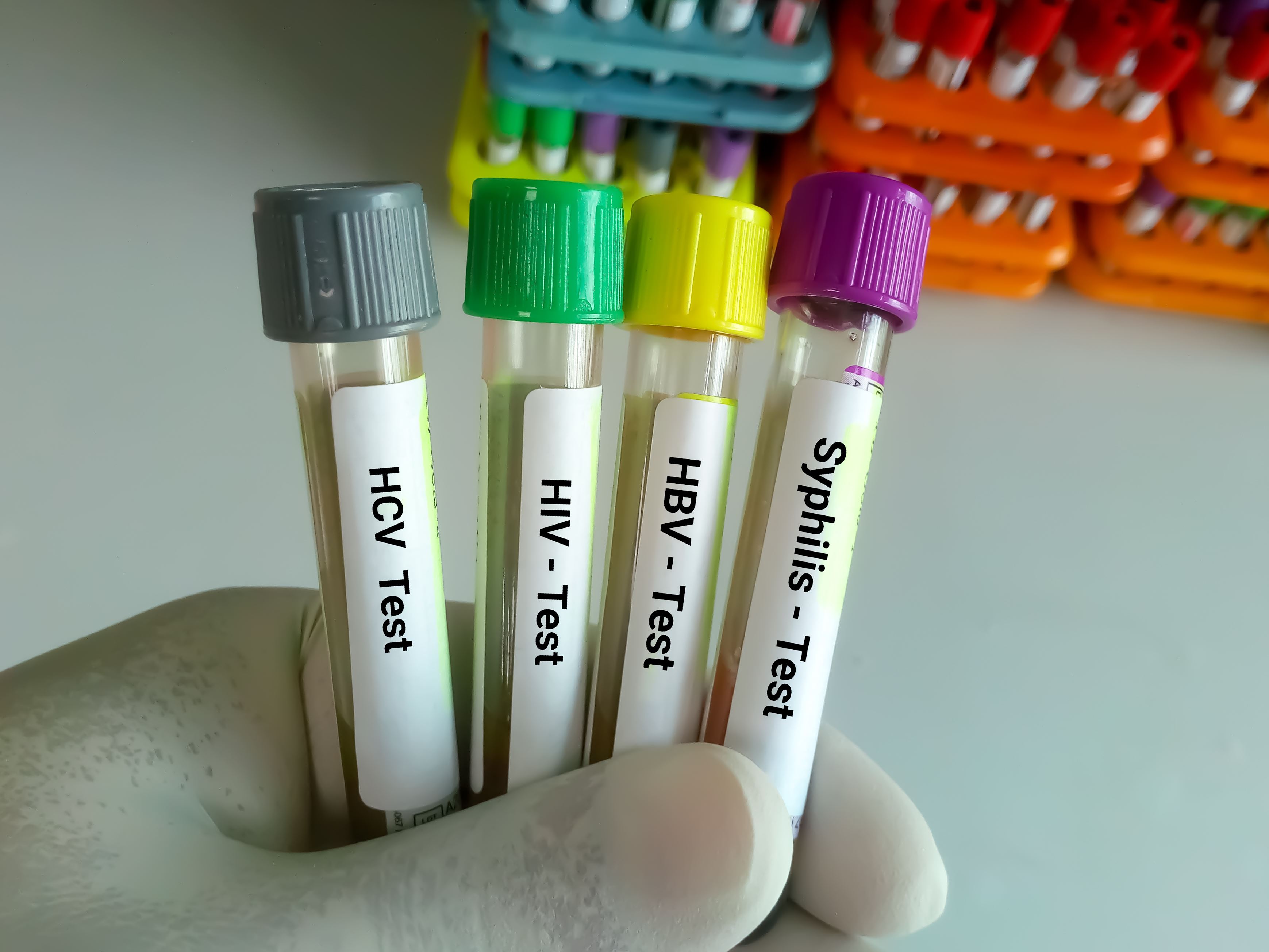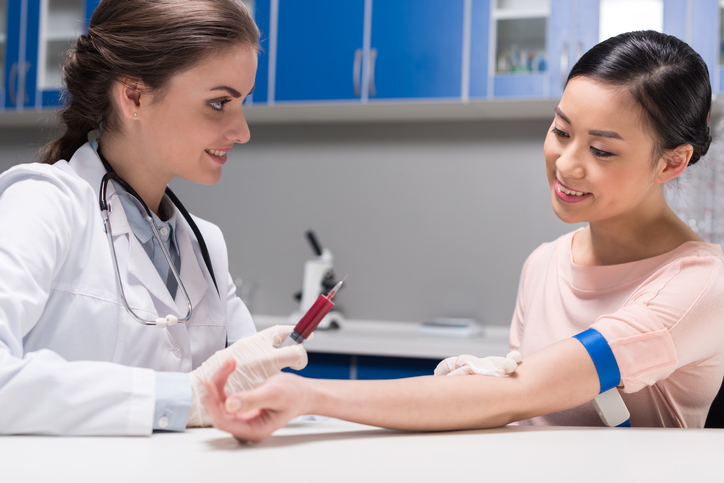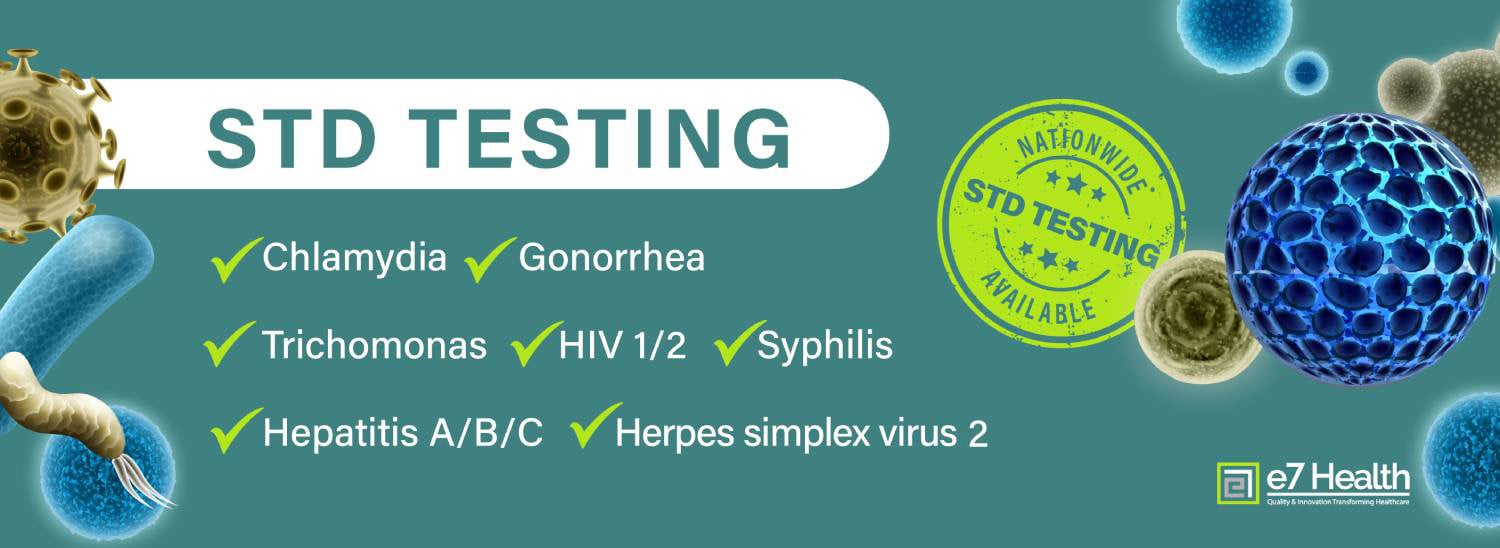Understanding STD Checks A Comprehensive Guide. Sexually transmitted diseases (STDs) are a significant public health concern, affecting millions of individuals worldwide. Despite the stigma often associated with these infections, understanding and managing them is crucial for maintaining sexual health. An STD check is an essential step in this process, allowing individuals to know their status and take appropriate action if necessary. This article aims to provide an in-depth exploration of STD checks, covering everything from what they entail to how to navigate the testing process.
The Importance of Regular STD Checks

Regular STD checks play a vital role in promoting sexual health and preventing the spread of infections. Many STDs can be asymptomatic, meaning individuals may not exhibit any noticeable symptoms even when infected. This lack of awareness can lead to further transmission and complications if left untreated.
Understanding Asymptomatic Infections
Asymptomatic infections pose a unique challenge in public health. Many people do not realize they are carriers of an STD, which can result in unknowingly transmitting the infection to partners.
The Silent Epidemic
The term “silent epidemic” refers to the high prevalence of asymptomatic STDs. For instance, chlamydia and gonorrhea are common infections that often do not present symptoms. Without regular testing, individuals may remain unaware of their status, leading to increased rates of transmission.
Click here for getting more information and a discount
Consequences of Untreated Infections
Untreated STDs can have severe health consequences, including infertility, chronic pain, and increased susceptibility to HIV. Regular STD checks help identify infections early, allowing for timely treatment and reducing the risk of complications.
Reducing Stigma Through Awareness
Awareness and education about STDs are essential in reducing the stigma surrounding them. Open conversations about sexual health can encourage more individuals to seek testing and treatment.
Promoting Safe Practices
By discussing STDs openly, we can promote safe sexual practices, such as using condoms and getting tested regularly. This proactive approach can significantly reduce the incidence of STDs in communities.
Building Support Systems
Creating supportive environments where individuals feel comfortable discussing their sexual health can lead to increased testing rates. Support groups and educational programs can empower individuals to take charge of their sexual health.
Types of STD Tests Available

There are various types of STD tests available, each designed to detect specific infections. Understanding the different testing methods can help individuals make informed decisions about their sexual health.
Blood Tests
Blood tests are commonly use to detect certain STDs, such as HIV, syphilis, and hepatitis. These tests analyze a blood sample to identify the presence of antibodies or the virus itself.
How Blood Tests Work
Blood tests typically involve drawing a small amount of blood, which is then sent to a laboratory for analysis. Results usually take a few days to process, depending on the type of test and the facility.
Advantages of Blood Testing
One of the primary advantages of blood testing is its ability to detect infections that may not show symptoms. Additionally, blood tests can provide a comprehensive overview of an individual’s sexual health by screening for multiple infections simultaneously.
Click here for getting more information and a discount
Urine Tests
Urine tests are another common method for detecting STDs, particularly chlamydia and gonorrhea. These tests require individuals to provide a urine sample, which is then analyzed for the presence of bacteria.
The Testing Process
The urine testing process is relatively simple and non-invasive,to avoid urinating for at least one hour before providing a sample to ensure accurate results.
Limitations of Urine Tests
While urine tests are effective for certain infections, they may not detect all STDs. For example, urine tests cannot identify infections like herpes or HPV, which require different testing methods.
Swab Tests
Swab tests involve taking samples from potentially infected areas, such as the genitals, throat, or rectum. These samples are then analyze for the presence of STDs.
When Swab Tests Are Necessary
Swab tests are particularly useful for diagnosing infections that are localized to specific areas. For instance, if an individual has sores or lesions, a swab test can help determine the cause.
Interpreting Swab Test Results
Interpreting swab test results can sometimes be complex, as false positives or negatives can occur. It’s essential to consult with a healthcare provider to understand the implications of the results and discuss potential next steps.
How to Prepare for an STD Check

Preparing for an STD check can help ensure a smooth testing experience. Knowing what to expect and how to prepare can alleviate anxiety and improve the accuracy of results.
Click here for getting more information and a discount
Choosing the Right Testing Location
Selecting a reputable testing location is crucial for obtaining accurate results. Individuals can choose between clinics, hospitals, or private laboratories.
Factors to Consider
When choosing a testing location, consider factors such as convenience, confidentiality, and the range of tests offered. Some clinics specialize in sexual health, providing a comprehensive array of services.
Making an Appointment
Many testing locations allow individuals to make appointments online or over the phone. It’s advisable to inquire about the specific tests offered and whether any preparation is required beforehand.
Understanding the Testing Process
Familiarizing oneself with the testing process can help reduce anxiety. Knowing what to expect during the appointment can make the experience more comfortable.
What Happens During the Appointment
During the appointment, a healthcare provider will typically ask questions about sexual history and any symptoms experienced. Based on this information, they will recommend appropriate tests.
Sample Collection Methods
Depending on the tests being conduct, sample collection may involve a blood draw, urine sample, or swab. Healthcare providers will explain the process and ensure individuals are comfortable throughout.
After the Test: What to Expect
After the test, individuals will need to wait for results, which can vary in time depending on the type of test conducted. Understanding the timeline can help manage expectations.
Receiving Results
Results may be communicate via phone, email, or through an online portal. It’s important to discuss the results with a healthcare provider to understand their implications fully.
Next Steps
If results are positive, healthcare providers will discuss treatment options and necessary follow-up care. If results are negative, it’s still essential to continue practicing safe sex and consider regular testing in the future.
Addressing Common Myths About STD Checks
Despite the importance of STD checks, several myths and misconceptions persist. Addressing these myths can help individuals make informed decisions about their sexual health.
Myth: Only Sexually Active Individuals Need STD Checks
One common myth is that only sexually active individuals need to get tested for STDs. However, anyone who has had sexual contact, regardless of frequency, should consider regular testing.
Understanding Risk Factors
Even individuals in monogamous relationships can be at risk if their partner has been untest. Regular STD checks are essential for everyone, as infections can be asymptomatic.
The Importance of Transparency
Open communication with partners about sexual health is crucial. Encouraging partners to get test can help create a safer sexual environment for everyone involved.
Myth: STD Checks Are Painful and Embarrassing
Another misconception is that STD checks are painful and embarrassing. While some individuals may feel anxious about the process, most tests are quick and minimally invasive.
The Reality of Testing
Most STD tests involve simple procedures, such as urine samples or swabs, which are generally well-tolerated. Healthcare providers are trained to conduct tests discreetly and professionally, ensuring comfort throughout the process.
Overcoming Anxiety
Feeling nervous about getting test is normal. Individuals can alleviate anxiety by educating themselves about the process and seeking support from friends or healthcare professionals.
Myth: You Can Tell If You Have an STD
Many people believe they can tell if they have an STD based on symptoms. However, many STDs can be asymptomatic, making regular testing essential.
Recognizing Symptoms
While some STDs do present symptoms. Such as unusual discharge or sores, others may not show any signs at all. Relying solely on symptoms can lead to missed infections and increased risk of transmission.
The Importance of Regular Testing
Regular testing is the only way to accurately know one’s STD status. Individuals should prioritize routine checks, especially if they engage in high-risk behaviors.
Click here for getting more information and a discount
FAQs About STD Check
What is an STD check?
An STD check is a medical test that screens for sexually transmitted diseases. It involves various testing methods, including blood tests, urine tests, and swab tests, to determine an individual’s sexual health status.
How often should I get tested for STDs?
The frequency of STD testing depends on individual risk factors. Such as the number of sexual partners and whether protective measures are used. Generally, sexually active individuals should consider getting test at least once a year.
Are STD check confidential?
Yes, STD check are typically confidential. Healthcare providers are bound by privacy laws to protect patient information. Individuals can also seek testing at anonymous clinics if they prefer additional privacy.
What should I do if my STD test is positive?
If your STD test is positive, it’s essential to consult with a healthcare provider to discuss treatment options and necessary follow-up care. Informing sexual partners is also crucial to prevent further transmission.
Can I get tested for STDs without a doctor’s referral?
Many clinics and testing centers offer walk-in services, allowing individuals to get tested without a doctor’s referral. It’s advisable to check with the specific location for their policies regarding testing.
Conclusion
Understanding the significance of STD checks is crucial for maintaining sexual health and preventing the spread of infections. Regular testing allows individuals to know their status, seek treatment if necessary, and engage in safer sexual practices. By addressing common myths and misconceptions, promoting awareness, and encouraging open conversations about sexual health, we can foster a culture of responsibility and care. Taking charge of one’s sexual health through regular STD checks is a proactive step toward a healthier future.
